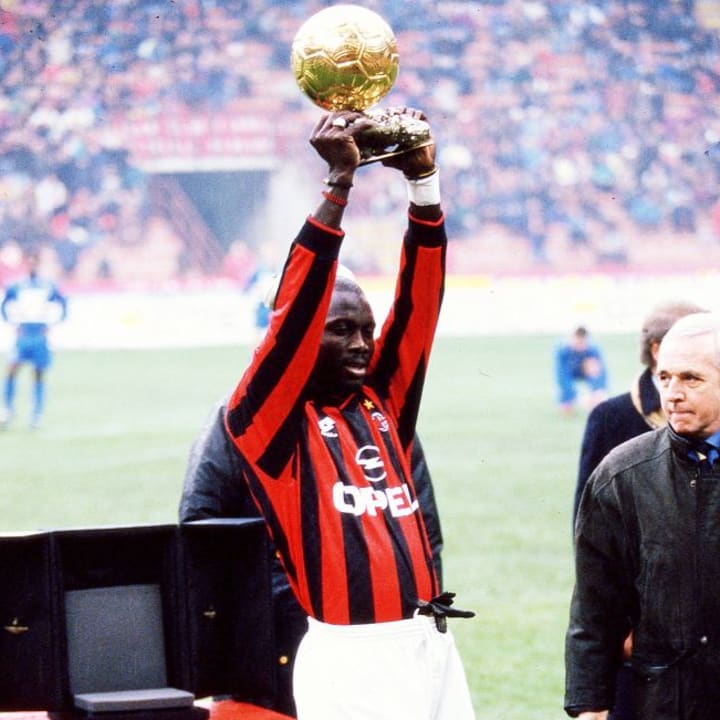
Ballon d’Or: 1995 – George Weah delivers football’s greatest individual prize to Africa
These days, the Ballon d’Or recognises the best footballer in the world in a given year. But that is a largely modern interpretation of the award and it hasn’t always been that way.
When the French journalist Gabriel Hanot, who was also the man who put forward the idea of the European Cup, conceived the Ballon d’Or in 1956, it was a prize for players from Europe and the award was accordingly widely known as the European Footballer of the Year.
Regardless of the existence of South American icons like Pele and Diego Maradona, or others like Garrincha, Socrates, Zico, Mario Kempes, Teofilo Cubillas, or the lesser internationally known Alberto Spencer, the Ballon d’Or didn’t go global until the mid-1990s.
With football truly the world’s game, France Football decided to make players from all over the planet eligible to win the Ballon d’Or for the first time.
In 2016, the magazine actually published a re-evaluation of the awards handed out from 1956 to 1994 inclusive and retrospectively recognised that Pele in particular would have been a worthy winner on seven separate occasions, although all of the original winners remained.
1995 was the first time that players from outside Europe were eligible to be nominated for and win the Ballon d’Or. As such, it fittingly went to AC Milan and Liberia striker George Weah, who also remains Africa’s only recipient of football’s greatest individual prize to date.
Weah played for both Paris Saint-Germain and Milan during 1995 and was an incredibly complete striker. He wasn’t prolific in terms of goals by the standards set by Lionel Messi and Cristiano Ronaldo in this generation, but his combination of skill and athleticism made him extremely difficult to play against and entertaining to watch.

Weah was 21 when he was spotted playing club football in Cameroon and recommended to Monaco manager Arsene Wenger in 1988. He was big hit in French football and would eventually dedicate his Ballon d’Or to Wenger for helping him become a world class player.
The striker swapped Monaco for PSG in 1992 and was poached by Milan midway through 1995, the ultimate underlining of his status at a time when Serie A was the best league in the world. He effectively replaced three-time Ballon d’Or winner Marco van Basten at San Siro and was often compared to Brazilian superstars Romario and Ronaldo for taking the role of striker to another level.
It was a huge boost for the whole of African football to have one of their own recognised as the best player in the world and in Weah’s own words, it also ‘put Liberia on the map’.
For more from Jamie Spencer, follow him on Twitter and Facebook!